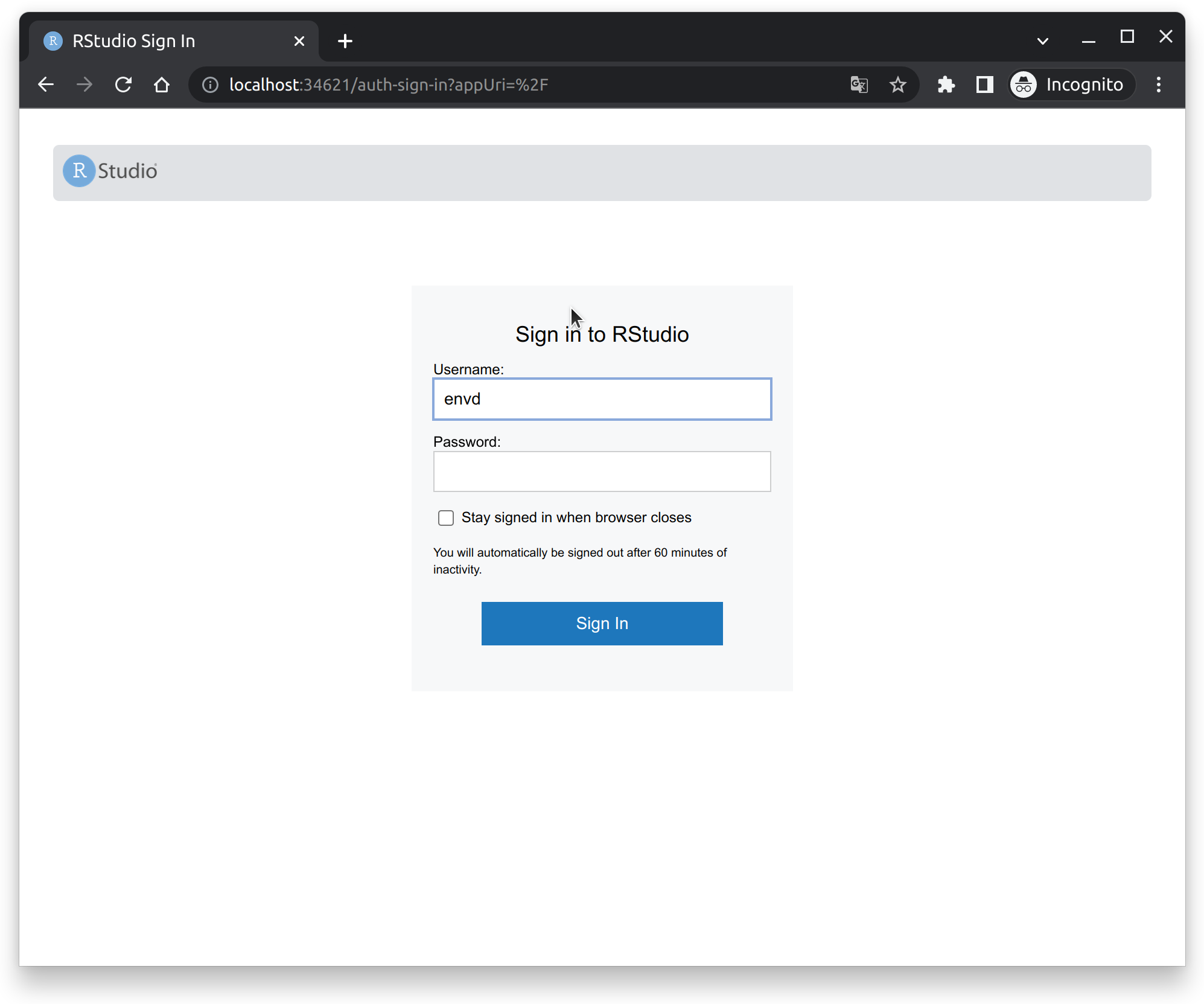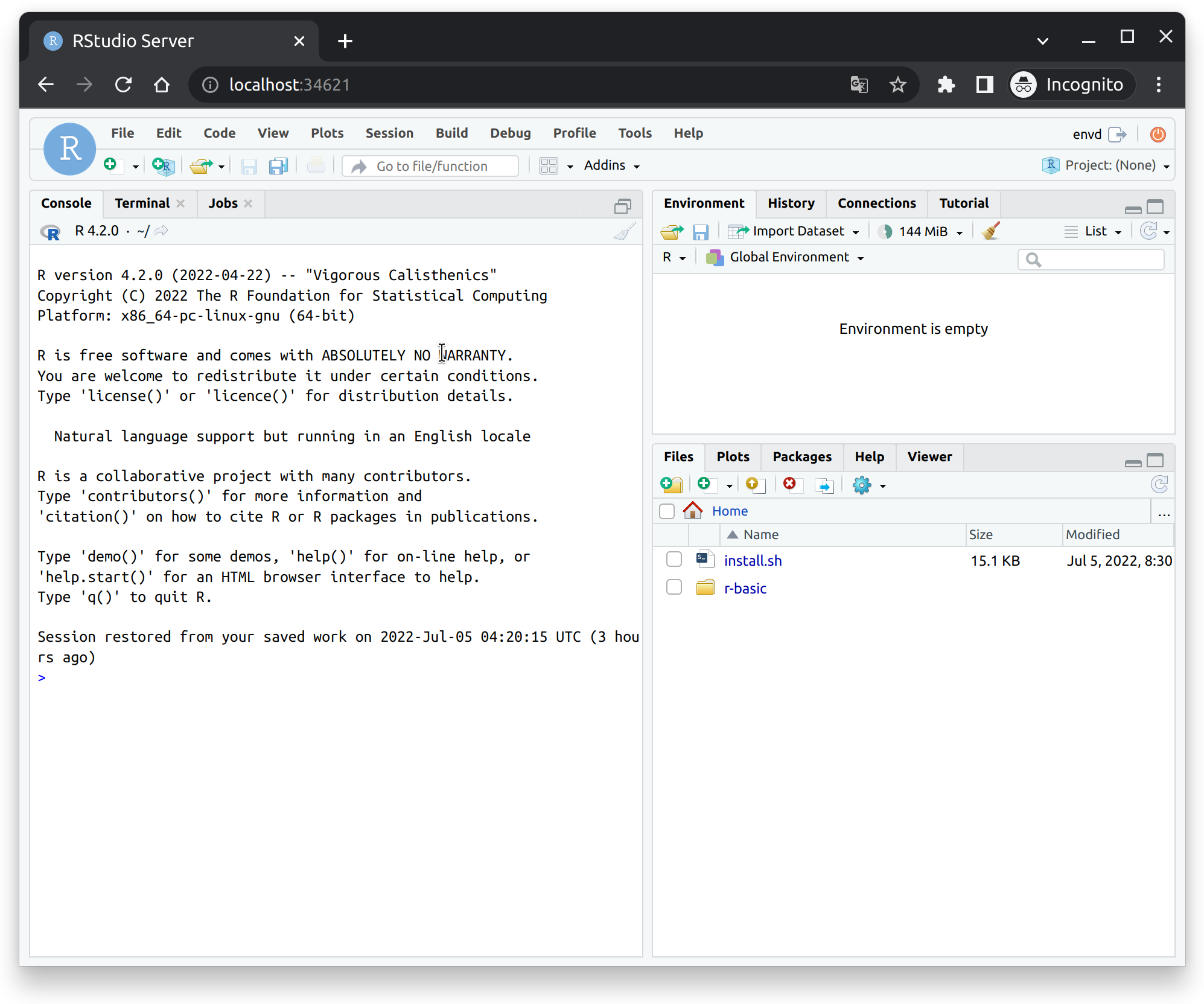Building an R Environment
This guide covers configuring R environments in envd. If you’re new to envd please read our Tutorial and build configuration guides first.
Specifying R
First, you can specify to use the R language in the base function.
def build():
base(os="ubuntu20.04", language="r")R packages
You can install R packages with install.r_packages function. The following example installs remotes and rlang packages:
def build():
base(os="ubuntu20.04", language="r")
install.r_packages([
"remotes",
"rlang",
])Configuring CRAN Mirror
By default, the RStudio CRAN mirror "https://cran.rstudio.com" is used when downloading and installing R packages. However, you can specify any other mirrors via config.cran_mirror() like the following:
def build():
base(os="ubuntu20.04", language="r")
config.cran_mirror(url="https://cloud.r-project.org/")
install.r_packages([
"remotes",
"rlang",
])Specifying shell program
You can specify shell program used in the environment with shell function. The following example uses zsh:
def build():
base(os="ubuntu20.04", language="r")
shell("zsh")Specifying VSCode extensions
You can specify VSCode extensions with install.vscode_extensions function. The following example installs REditorSupport.r-lsp[1]:
def build():
base(os="ubuntu20.04", language="r")
install.vscode_extensions(["REditorSupport.r-lsp"])Setting up RStudio server
You can set up RStudio server with config.rstudio_server.
def build():
...
config.rstudio_server()Endpoint can be got through envd envs list command.
$ envd envs list
NAME ENDPOINT SSH TARGET IMAGE GPU CUDA CUDNN STATUS CONTAINER ID
r-basic rstudio: http://localhost:34621 r-basic.envd r-basic:dev false <none> <none> Up 6 hours 1eb7d40e5a8aThen you can connect to the RStudio server by using http://localhost:34621 in your browser. Please use envd as the username, and the password can be any string.


open-vsx is used instead of Microsoft VSCode Marketplace due to licensing issues. ↩︎